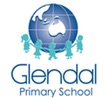Year 1 is the continuation of an exciting Foundation year. We provide a creative,supportive and productive environment that nurtures and promotes the physical, social, emotional and cognitive development of each student.
Students develop learning independence throughout the year and become more capable in literacy and numeracy.The children are engaged in differentiated learning experiences, focused on their ability. These activities cover all areas of the curriculum.
The Reading Recovery program is available for selected Year 1 students, who require specific literacy skill intervention strategies.
We offer many exciting incursions and excursions that link to our main area of investigation for the term.
Our school student well being program is based on the Resilience, Rights & Respectful relationships program. We teach mindfulness strategies and our students continue to develop social, emotional and positive relationship skills.
The coding program teaches Scratch junior and lego We Do, a program that teaches technology through constructing models and bringing them to life.
Our 'Swim and Survive' program at the Monash Aquatic centre is well attended, as learning to swim confidently is an essential survival skill.
Other activities will be placed on the Year 1 blog, as they occur.
2024 SEMESTER 1 CURRICULUM
English
Year 1 students completed a range of activities to strengthen their literacy skills. Reading groups were focussed on decoding strategies, sequencing text, comprehension and text response. Students learned about the structure and language features of text types including narratives, recounts, procedures and persuasive texts. In their own writing, they applied simple punctuation and grammar. Spelling activities centred on identifying and recording sound and letter patterns. When presenting Share and Chat items, students used appropriate vocabulary.
English as an Additional Language (EAL) students follow a pathway of development in learning English that is different from students for whom English is their first language. EAL students deepen their understanding of the English language through practical activities and focus lessons in school. The two EAL stages are A (Early Immersion) and B (Mid Immersion). EAL students work through this continuum until they have a confident grasp of the English language.
Year 1 students furthered their skills in place value, partitioning, counting forwards and backwards, skip counting, and using 100s charts and number lines. They developed their addition and subtraction skills and made comparisons between Australian currency and money from around the world. Students explored the areas of measurement through engaging, ‘hands-on’ activities, where they learnt about the properties of 2D and 3D shapes, capacity and mass, as well as different times of the day and their daily schedules. They collected and displayed a range of data on different graphs, read simple maps and gave directions. Students were introduced to probability concepts, using ‘chance’ language to support a range of statements.
Year 1 students examined diverse family structures, learning about how the roles and responsibilities of family members have changed over time. They learnt about kinship in Aboriginal and Torres Strait Islander families. Students investigated healthy choices, identifying behaviours that promote physical, mental and social wellbeing, and focused on how to be safe and physically active. They identified their family members and people in the community who help keep them healthy. In geography, students explored the importance of different features of local places and how we care for these.
Year 1 students were immersed in a range of topics to introduce them to different areas of science, including dinosaurs, the water cycle, the solar system, colour and light, and rocks and minerals. They took part in a range of hands-on activities and experiments. Students were encouraged to use scientific thinking and critical thinking skills to answer questions and develop their knowledge.
Year 1 students practised reading, writing and performing the rhythms ‘ta’ and ‘ti-ti’ (crotchet and barred quavers). They sang songs featuring the Kodaly pitches ‘so’ and ‘mi’ (a minor third interval) and began to learn how to sight-read four-beat, ‘so-mi’ patterns on the music staff. Students then applied this understanding when playing chime bars and singing.
Year 1 students focused on art principles and elements, including line, colour, value, shape, form, space, texture, contrast, emphasis, unity, repetition, pattern, balance, movement and rhythm. They created a collage lion inspired by artist Matisse and contemporary artist Marc Paper Scissor, exploring how paper strips can be manipulated into many different textural lion mane hair effects. Students explored construction and mixed media of materials to make their own paper plate and egg carton UFO’s and Plasticine aliens.
Year 1 students used different parts of their body to explore movement. They completed a small gameplay module, learning a variety of skills including developing strategies for success. Students explained the importance of rules and fair play, and demonstrated this through sharing equipment and turn-taking. They developed their fundamental motor skills through running, hopping, skipping, jumping, kicking, throwing and catching. Students worked individually, with a partner and in small groups, with and without equipment, considering and revising the need for safety, and practising appropriate skills and procedures.
Year 1 students covered topics including colours, personal pronouns, family members and the numbers 1 to 20. They continued to build their Chinese vocabulary related to greetings and self-introductions through structured conversations and sentences. Learning activities included dancing, singing, craftworks and celebrations of the Chinese New Year and the Dragon Boat Festival.
All parents who assist in any way must have a Working With Children Check. This card must be presented at the office when parents sign in

